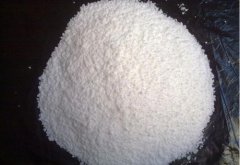Organic fertilizer production method: weeds make organic fertilizer, what are the benefits of weeds making organic fertilizer?
Weed organic fertilizer: weeds can also be made into organic fertilizer. Do you know how to make them? Only by farming from a longer-term perspective and forming a cycle of good, can the vitality of the earth last forever.

In the general concept of farmers, weeds are not good, it affects the growth of fruit trees and fruit harvest, so farmers use herbicides to weed. In fact, weeds also have their benefits, for example, they can maintain moisture, do not cause soil erosion, and become nutrient-rich organic fertilizer after decay. In fact, the nutrients provided by weeds to the soil and fruit trees are far greater than the amount extracted from the earth during their growth.
Carpet grass is a common weed, there are many varieties, basically its roots are shallow, moisturizing, but will not absorb too much water and affect the growth of fruit trees. Usually it is extended horizontally, with high density and good coverage, so that the soil is not easy to be eroded and lost. This kind of carpet grass can grow up to two feet tall and needs to be weeded about four times a year.
The grass cultivation method implemented by organic cultivation, with an inclusive attitude, gives the nutrients and space needed for the growth of weeds. On the surface, it wastes part of the resources of the land and fruit trees, but when it is turned into organic fertilizer and returns to the soil, it nourishes fruit trees and soil much more than it absorbs, and has a far-reaching impact on soil fertility. Only by farming from a longer-term perspective and forming a cycle of good, can the vitality of the earth last forever.
The grass contains free nitrogen. When the grass is rotten, the nitrogen returns to the soil to form nutrients, enriches the soil and nourishes the fruit trees. In fact, the advantages outweigh the disadvantages. It's just that farmers have long formed the idea that weeds are harmful, and it takes more time and manpower to cut grass, and its initial effect is not as obvious as spraying pesticides, so it's not easy to change farming methods.
- Prev

How to use compost: what are the benefits of composting?
Do you know the benefits of composting? The source of nutrients for organic crops depends entirely on the use of compost under the principle of no use of chemical fertilizers. The nutrient content of compost, in addition to a small amount of rapidly available inorganic nutrients, is large.
- Next

What is melamine? Is it okay to make organic fertilizer from melamine dairy products?
Melamine has had a serious impact on dairy products, and people do not dare to consume it. if tainted milk powder is used as fertilizer, will it be absorbed by crops and affect the human body? Melamine is a nitrogen-containing organic compound produced from urea, which is biodegradable and microbiologically produced.
Related
- Fuxing push coffee new agricultural production and marketing class: lack of small-scale processing plants
- Jujube rice field leisure farm deep ploughing Yilan for five years to create a space for organic food and play
- Nongyu Farm-A trial of organic papaya for brave women with advanced technology
- Four points for attention in the prevention and control of diseases and insect pests of edible fungi
- How to add nutrient solution to Edible Fungi
- Is there any good way to control edible fungus mites?
- Open Inoculation Technology of Edible Fungi
- Is there any clever way to use fertilizer for edible fungus in winter?
- What agents are used to kill the pathogens of edible fungi in the mushroom shed?
- Rapid drying of Edible Fungi

